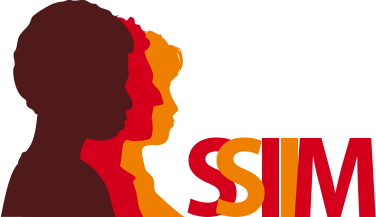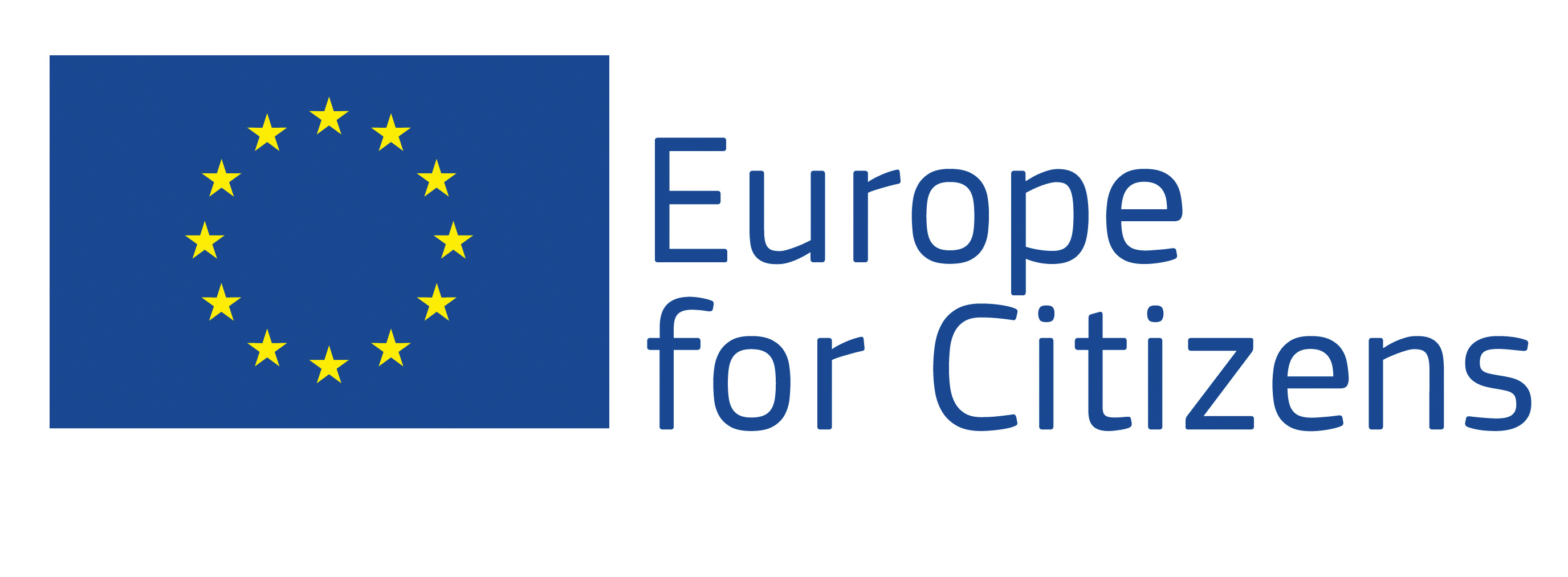The Project is articulated into a set of interlinked activities. Four international events will be held throughout the 24 months aimed at:
i) enhancing knowledge exchange and practices among cities
ii) developing a common understanding of similar challenges that differently impact on cities in Europe
iii) supporting local societies in the design of new policies and regulations in real-life scenarios with the active participation of citizens, particularly the ones usually excluded by decision making processes.
Each international event includes: i) closed doors working sessions during which the project partners will work on common strategies to analyse, activate and reconnect deprived neighbourhoods in their cities and ii) a public conference presenting to the large public relevant issues concerning the promotion of migrants urban inclusion and the overall social cohesion in European cities
INTERNATIONAL EVENT 1 – “Restarting (from) European Cities: immigration and intercultural dialogue, from the global to the local”
Strasbourg (France), 28-29/11/2016
Content:
With the facilitation of the SSIIM Unesco Chair researchers, participants discussed:
- figures about migration and refugees VS myth and stigmatisation processes
- European conventions/national legislation on migration
- immigration situation in partner countries and causes of local radicalisation patterns
Through a collaborative workshop, all partners identified conflicting areas in partner cities and were trained on techniques of territorial analysis (see local paths-pilot projects).
Results:
All participants became aware about:
- migration/refugees processes at EU level
- the causes and effects of stigmatisation processes and radicalisation patterns at local level
- conflicts, xenophobia, intolerance and discrimination aroused by the presence of migration/refugees in their cities
- common challenges about migration at EU level that have different outcomes at national level
- the presence and the main features of conflicting areas due to the presence of migration in the city
Activities
The first day saw a public conference during which local stakeholders and international actors shared knowledge and practice on how to promote intercultural dialogue within European urban environments. The second day allowed project partners to define the methodology of the local process planned within the project, as well as to identify conflicting areas in their cities and learn more about techniques of territorial analysis. The third day was dedicated to field visits where project partners were introduced to the work of two local organisations based in Strasbourg: the Association Alsace-Syrie ad the Association CASAS.
Presentations
![]() Giovanna Marconi
Giovanna Marconi
![]() Lorna Muscat
Lorna Muscat
![]() Marco Cremaschi
Marco Cremaschi
![]() Marco Cremaschi
Marco Cremaschi
![]() City of Strasbourg
City of Strasbourg
![]() Ana Tomas
Ana Tomas
![]() Ana Tomas
Ana Tomas
INTERNATIONAL EVENT 2 -“Reframing Urban cohesion in European cities: the diversity advantage”
Venice (Italy), 6-8 June 2017
The Public Event took Place on Wednesday 7th of June 2017 and focused on urban policies to mainstream the diversity advantage and on urban good practice promoting migrants’ inclusions. It drew knowledge and experiences from international organisations, such as the UNESCO, the Council of Europe or RECFronteras, as well as from ‘virtuous’ European cities, such as Reggio Emilia (Italy), Venice (Italy), Etterbeek (Belgium) and Mechelen (Belgium).
programme of the PUBLIC EVENT>>
> Closed doors sessions took place on Tuesday 6 (2 pm-6pm), wednesday 7 (9.30am-1.30pm) and Thursday 8 (8 am – 1 pm)
During closed doors sessions the partners exchanged about the local paths implemented shared lessons learnt in thematic focus groups. Common guidelines for the development of local pilot projects were defined. Parallel training sessions were held on tools to:
- develop pilot projects to overcome stereotypes about immigrants
- promote intercultural dialogue in participatory environment (tools and strategies)
the Training on good practices and tools to promote participative projects/initiatives and active citizenship (7 June 2017, h. 9.30-13.00) was delivered by FABRIZIO URETTINI, expert of participative communication and social activation
programme of CLOSED DOORD SESSIONS>>
Results:
- Specific competences on conflict management, intercultural dialogue, active citizenship promotion were acquired
- Competences on pilot project design and implementation were acquired
- The kind of local resources to invest in the EU as an intercultural political space were shared
- Knowledge exchange and mutual understanding among partners were facilitated
- Active citizenship was promoted in partner cities/targeted areas
- Tools to reduce radicalised behaviour, xenophobia, discrimination were exchanged
International Event 2 was organised in coincidence and synergy with U-RISE master
INTERNATIONAL EVENT 3 – “Reconstructing bridges within European cities: civic participation against socio-spatial stigmatisation and boundaries”
Mostar (Bosnia and Herzegovina), 28-29 November 2017
The public conference allowed local authorities from across Europe to share experiences on their role in time of crisis as socio-spatial stigmatisation, social exclusion and Euroscepticism all reinforce each other. Then community-based organisations exchanged on their role in building intercultural dialogue and fostering inclusion. The internal meetings allowed the project partners to share information on the design and the implementation of the local paths pilot project, as well as to start working on recommendations to be included in a city manifesto on urban inclusion and the right to the city for newcomers. Project partners also had the occasion discover different aspects of the multicultural aspects of the city of Mostar during a field visit.
![]() Agenda global
Agenda global
![]() Agenda public conference
Agenda public conference
Presentations
INTERNATIONAL EVENT 4 – “Reactivating European urban citizenship: a network of inclusive towns”
Athens (Greece), 30 May- 1 June 2018
During the last international seminar, the partners developed a city manifesto to build a common understanding about interculturalism, social inclusion, integration of migrants. The project results are to be valorised in a Handbook collecting the experiences of the enactment that overcome stereotypes about immigrants and build counter narratives.
During the Public conference, organized in cooperation with European Grouping of Territorial Cooperation Amphictyony (EGTCA) and the Municipality of Agia Varvara, the project outcomes were presented to the local stakeholders, partners shared their pilot projects and a dedicated space for interaction and exchange of experience was provided during the URGENT Inclusion Fair.
The 35 international participants present at the conference had also the opportunity to learn about the Greek realities in regards to urban inclusion for newcomers and migrants. Mr. Georgios Alexopoulos, General Manager at Symplexis has shared with the public the challenges civil society organisations in Greece are facing, such as institutional barriers, financial or operational ones. Mrs Chrissa Geraga, Local coordinator for international city-networks from the municipality of Patras has shared their experience within the ARRIVAL CITIES EU project and Patras local action plan for migrants’ inclusion.
Equally, Mr George Krikri, Vice-Mayor of the municipality Nea Smyrni has stressed their commitment in creating more inclusive urban spaces. The local reality and activities taking place in Athens were present also by Mrs Giouli Gonou from the Hellenic Agency for Local Development and Local Government.
URGENT project is financed by the Europe for Citizens programme of the European Union. The programme offers multiple opportunities to both civil society organisations and local authorities to partner for European projects. Mr Antonios Karvounis, Europe for Citizens programme focal point in Greece has also shared with the participants during the conference the contribution of the programme to tackling the migration issue and the opportunities laying ahead.
The 3 days seminar concluded with a session on the future of the URGENT project where partners explored different funding opportunities to continue the work started. URGENT: Urban Re-Generation: European Network of Towns project aims at promoting city-level and local awareness-raising about the urgent need for establishing new intercultural connections among inhabitants of marginalized multi-ethnic neighbourhoods/areas and population of central areas. Within the project we are particularly tackling the growing fear of immigration and debating on how to overcome related misleading stereotypes, which feed euroscepticism and undermine fragile European cohesion.
![]() Agenda International Meeting
Agenda International Meeting
![]() Report
Report
Presentation
![]() Reactivating European urban citizenship: a network of inclusive towns” 31/05/2018 – Agia Varvara, Greece
Reactivating European urban citizenship: a network of inclusive towns” 31/05/2018 – Agia Varvara, Greece
![]() Migration: Challenges for the Civil Society in Greece
Migration: Challenges for the Civil Society in Greece
![]() Αποτελέσματα του έργου Ολοκληρωμένο Σχέδιο Δράσης
Αποτελέσματα του έργου Ολοκληρωμένο Σχέδιο Δράσης
![]() ‘Europe for Citizens, 2014-2020’: Reflection on the Immigration Projects 2017
‘Europe for Citizens, 2014-2020’: Reflection on the Immigration Projects 2017


